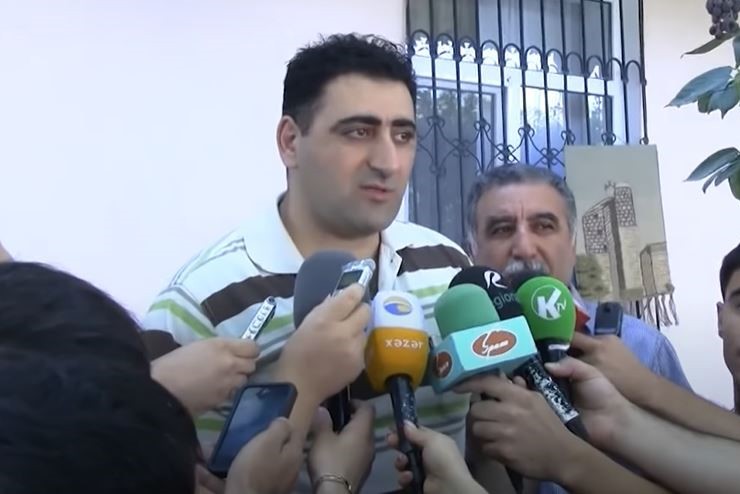
The European Court of Human Rights (ECHR) has ruled against Azerbaijan for pardoning Ramil Safarov, an Azerbaijani national who murdered Armenian national Gurgen Margaryan in Hungary during a NATO training course both were attending in 2004.
The Court ruled on 26 May that Azerbaijan, by releasing Safarov after he was transferred to Azerbaijan in 2012, awarding him salary arrears for his eight years prison, and granting him a military promotion and a flat, had demonstrated it had violated articles 2 and 14 of the European Convention on Human Rights — the right to life and the right to freedom from discrimination, respectively.
The court also found that the behaviour of the Azerbaijani government constituted an ‘approval’ and ‘endorsement’ of Safarov’s actions. Though five of the court’s six judges did not go so far as to hold that the State of Azerbaijan had ‘clearly and unequivocally’ adopted ‘as its own’, and as a result ruled that Azerbaijan did not ‘directly’ assume responsibility for the killing.
The murder and its aftermath
The murder took place in the evening of 18 February 2004, during a NATO-sponsored English-language training course for military personnel. Both Margaryan and Safarov were participants in the course, which was part of NATO’s Partnership for Peace program.
Safarov had entered Margaryan’s dormitory in the middle of the night and struck him while he was asleep 16 times with an axe he had purchased earlier that day. After the murder, he went to the room of another Armenian officer, Hayk Makuchyan, apparently with the intent of murdering him as well. However, he was not able to enter because the door was locked.
Hungarian police officers, who were called in by Margaryan’s Hungarian roommate who had witnessed the murder, arrived at the scene and immediately placed him under arrest.
Safarov was found guilty of premeditated murder and sentenced to life in prison by a Hungarian court in April 2006 with the possibility of parole after 30 years.
During the trial, Safarov ‘admitted that he had murdered [Margaryan] on account of his Armenian origin’ and ‘showed no remorse for the crime he committed’.
During the investigation into the murder, Safarov said that he ‘strongly disliked’ Armenians because relatives of his had been killed in the Nagorno-Karabakh conflict. He also claimed that Armenian participants in the language course had repeatedly mocked him and the Azerbaijani flag, which is what motivated him to commit the crime.
After he spent eight years in a Hungarian prison, on 31 August 2012, Hungary agreed to transfer Safarov to Azerbaijan to carry out the rest of his sentence.
On his arrival to Baku, Safarov was granted a presidential pardon by Azerbaijani President Ilham Aliev, was promoted to Major, given back pay for the eight years spent in prison, and awarded a flat.
In statements made at the Council of Europe’s thirty-first Conference of Ministers of Justice in 2012, the delegation of Azerbaijan’s Ministry of Justice stated that Safarov’s actions ‘were never approved or justified at the official level. He was not welcomed by the high officials.’
The case and verdict
On 25 February 2013, Margaryan’s relatives, as well as Hayk Makuchyan, brought the case to the European Court of Human Rights.
The plaintiffs did not seek financial compensation from either Hungary or Azerbaijan, except the coverage of their legal fees. In an interview with the Guardian, Makuchayn said that they sought acknowledgement of the heinous act, ‘putting an end to impunity and the prevention of hatred against Armenians.’









